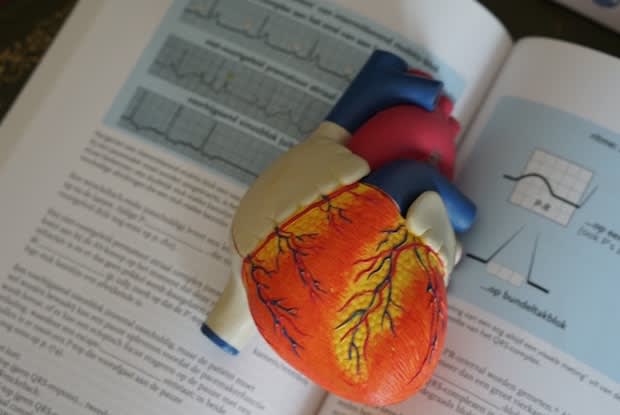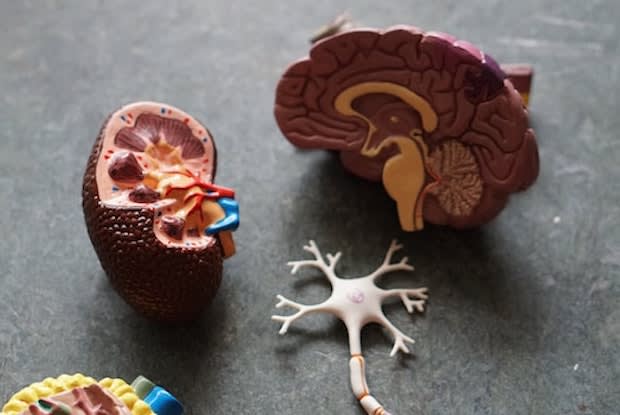Table of Contents
I. Understanding Blood Pressure
II. Risk Factors for Hypertension
VI. Kidney Disease & Kidney Failure
Understanding Blood Pressure
Blood pressure is the force of blood pushing against the arterial walls. As the heart beats, blood is pumped into the arteries and takes the blood to other parts of the body. When the heart is pumping, it is called systolic blood pressure and diastolic when the heart is resting. A blood pressure reading is made of these two numbers (systolic/diastolic).
The rate of blood pressure is one of the most vital measurements in the body. If blood pressure is too high or too low, then the body may experience issues. If someone is suffering from high blood pressure, the heart is pumping harder than normal. If the heart continuously overexerts itself, then several health problems may occur. Typically, several medications can help reduce high blood pressure (hypertension). These medications can include Toprol XL (metoprolol XL), Bumex (bumetanide), Benicar (olmesartan), and Aldactone (spironolactone). Read below to learn more about the long-term effects of high blood pressure on the body. [1]
Risk Factors for Hypertension
Blood pressure can occur for several reasons. High blood pressure may be genetic or caused by age (primary hypertension). For others, it may be caused by other medical conditions, which is known as secondary hypertension. Some common risk factors for high blood pressure can include:
Diet: If you consume too much sodium in your meals, you can retain fluid and increase blood pressure. Too little potassium in your diet can also increase the accumulation of sodium in the blood.
Smoking and drinking: Unhealthy habits like smoking and drinking can damage your heart and arteries. Smoking or chewing tobacco can damage the artery lining of the walls, causing them to narrow and increase the risk of heart disease. Drinking alcohol excessively can also damage the heart and cause hypertension. Age and race: Your risk for high blood pressure increases as you get older. Up until 64 years old, hypertension is more common in men. But after 65, women are more likely to have high blood pressure. Those of African ancestry are predisposed to high blood pressure and often develop it at an earlier age. [2] Obesity and inactivity: If you are overweight or obese, your risk of hypertension is much higher. The more you weigh, the more blood your body needs to supply nutrients to the tissues. As blood volume increases, the force against the arterial walls increases. Those who are inactive are also at high risk because they have a higher heart rate. This can be dangerous for the heart, so it is important to exercise the heart and body. High blood pressure may result in heart attacks. If you have hypertension, the arteries serving the heart become narrow. They may narrow due to a buildup of cholesterol fats (plaques) known as atherosclerosis. The arteries will harden, and blood pressure will continue to rise increasing coronary events. The blood flow to the heart muscle will be interrupted and starved of nutrients and oxygen. [3] Some common symptoms of a heart attack can include: The strain on the blood vessels that accompanies hypertension can make it easier for a blood clot to form. When blood vessels become narrow, damage to the vessels increases, as does the risk of blood clots. These clots can then break off from the vessel and travel to the brain, leading to a stroke. This is known as an ischemic stroke. You may also experience a hemorrhagic stroke if you have high blood pressure. This type of stroke occurs when you have a weakened blood vessel in the brain that can leak or eventually burst. This brain bleed is known as an aneurysm and can be deadly. [5] Symptoms of a stroke can include: Heart failure and hypertension often go hand in hand. Around two-thirds of people who have heart failure are currently experiencing high blood pressure or once did. Arteries experience tiny tears over time if you suffer from hypertension, which can easily turn into scar tissue. This scar tissue makes it easier for cholesterol plaques to build up in the arteries and narrow blood vessels. If your heart does not get adequate blood flow for a long period, the heart muscle becomes thicker and larger and does not pump blood as well. [7] Once heart failure is diagnosed, it is generally irreversible, but you can modify your routines to prolong life quality. Along with medications like Toprol XL (metoprolol XL), you can limit your sodium intake and adopt a healthy exercise regime. You may also want to keep in regular contact with your doctor and check your blood pressure often. [7] Symptoms of heart failure can include: The kidneys and circulatory system have a symbiotic relationship. The kidneys help filter waste and excess fluid in the body through a network of blood vessels. When these vessels are damaged because of high blood pressure, the kidneys' nephrons are not receiving the proper amount of oxygen and nutrients. If hypertension continues, damaged arteries around the kidneys may narrow or weaken and cannot deliver enough blood to the kidneys. Damaged kidneys cannot regulate blood pressure, so high blood pressure is a leading cause of kidney failure. [9] Kidney disease signifies the gradual loss of kidney function. Kidney failure may occur as a result of long-term kidney disease. If the kidneys cannot properly filter waste from the body, dialysis treatments may be necessary to remove waste products and fluid from the body through a dialysis machine. [10] Symptoms of kidney problems: The content provided in this article is based on thorough research and in some cases, reviewed by a medical professional. Our goal for the information is to provide helpful, general health informational. It is not intended as a substitute for professional medical advice.
Heart Attack

Stroke
Heart Failure
Kidney Disease & Kidney Failure

